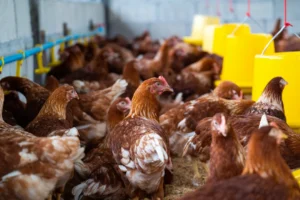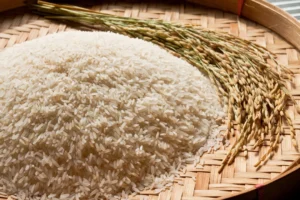Political risks are a significant concern for businesses involved in the agricultural commodities trade. Political instability in importing countries and the rise of protectionist policies can disrupt supply chains, impact pricing, and create uncertainty in the market. Understanding these risks and developing strategies to mitigate their impact is crucial for maintaining competitiveness and ensuring the smooth operation of trade activities. In this post, we will explore how political risks affect agricultural commodities trade and discuss ways to navigate these challenges.
Political instability in importing countries can lead to a range of disruptions, from changes in government policies to civil unrest and economic turmoil. These factors can affect the demand for agricultural commodities, alter trade agreements, and create barriers to market entry. Businesses must stay informed about the political landscape in their target markets and be prepared to adapt to sudden changes.
Protectionism, characterized by the implementation of tariffs, quotas, and other trade barriers, poses another significant risk to the agricultural commodities sector. Protectionist policies can increase the cost of exporting goods, limit market access, and create an uneven playing field for international competitors. Companies must develop strategies to navigate these barriers and explore alternative markets to mitigate the impact of protectionism.
Political Instability in Importing Countries
Political instability in importing countries can have profound effects on the agricultural commodities trade. Changes in government policies, civil unrest, and economic instability can disrupt supply chains and create uncertainty for businesses. For example, a sudden change in trade regulations or import restrictions can impact the flow of goods and affect pricing and demand.
To navigate the challenges posed by political instability, businesses must stay informed about the political landscape in their target markets. This includes monitoring news and developments, understanding the potential impact of policy changes, and maintaining flexibility in their operations. Building strong relationships with local partners and stakeholders can also help businesses adapt to changes and mitigate risks associated with political instability.
Risks of Protectionism
Protectionism, characterized by the implementation of tariffs, quotas, and other trade barriers, poses significant risks to the agricultural commodities sector. Protectionist policies are often implemented to protect domestic industries, but they can create challenges for international exporters. Higher tariffs and trade barriers can increase the cost of exporting goods, reduce competitiveness, and limit market access.
To mitigate the impact of protectionism, businesses must develop strategies to navigate these barriers. This includes diversifying their markets to reduce dependence on any single country, exploring alternative trade routes, and leveraging trade agreements that provide preferential access to certain markets. Additionally, companies can advocate for fair trade practices and engage in dialogue with policymakers to address the challenges posed by protectionist policies.
Mitigating Political Risks
Mitigating political risks requires a proactive approach to risk management. Businesses must conduct thorough risk assessments to identify potential political risks in their target markets and develop contingency plans to address them. This includes diversifying suppliers and markets, securing long-term contracts, and investing in insurance to protect against political risks.
Additionally, businesses can leverage technology to enhance supply chain visibility and resilience. Real-time monitoring and data analytics can help companies identify potential disruptions and respond quickly to mitigate their impact. By adopting a proactive approach to risk management, businesses can navigate the challenges posed by political risks and ensure the smooth operation of their trade activities.
Building Resilience
Building resilience in the face of political risks involves developing strategies to adapt to changing conditions and maintain competitiveness. This includes investing in sustainable practices, building strong relationships with stakeholders, and continuously improving operations. By fostering a culture of resilience, businesses can better navigate the uncertainties of the global market and ensure long-term success.
Engaging with industry organizations and participating in trade associations can also help businesses stay informed about political developments and advocate for favorable trade policies. Collaboration with other industry players can strengthen the collective voice of the sector and influence policy decisions that impact the agricultural commodities trade.
Conclusion
Political risks, including political instability in importing countries and protectionist policies, present significant challenges for the agricultural commodities trade. By understanding these risks and developing strategies to mitigate their impact, businesses can maintain competitiveness and ensure the smooth operation of their trade activities. Proactive risk management and building resilience are essential for navigating the uncertainties of the global market.
At Sax Trading LLC, we understand the complexities of political risks and are committed to supporting our partners in navigating these challenges. Our expertise, global network, and commitment to quality ensure that your agricultural commodities trade is optimized for success. Request a quote today and discover how we can help your business thrive in the face of political risks.








